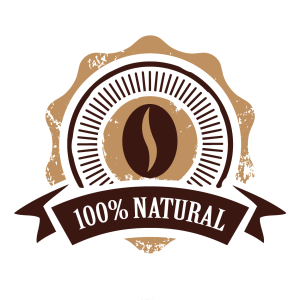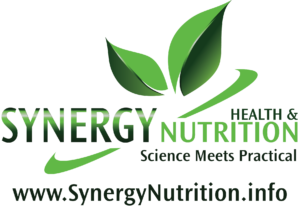 A quick browse on the internet yields “7 health reasons…” “10 ways coffee harms…” “11 good things about coffee…” Do you have whiplash yet?
A quick browse on the internet yields “7 health reasons…” “10 ways coffee harms…” “11 good things about coffee…” Do you have whiplash yet?
And the media is not helping! One night’s news report conflicts with another’s blatantly contradictory info. So what do we do? Whatever the heck we want, apparantly. The coffee infusion of ground, roasted coffee beans, is among the most widely consumed beverages in the world.
After all, that chocolaty aroma… the promise of energy… so is coffee good or bad?
My own courtship with coffee.
The truth is, I love my coffee. I find this subject probably more confusing than you do.
In graduate school I was smitten, completely enamored with dark French roast. Back in the 1990’s I worked over 90 hours between running a physical therapy clinic and working on my neuroscience thesis. The coffee pot was always on and always full.
But it soon became an addiction. If my hands weren’t shaking then I felt extreme cravings and tired. My body was telling me what I didn’t want to know—and I wasn’t listening to it.
When I left school and focused full time on healthy approaches to solving drug addiction, some of my own habits came to bear. There is nothing worse than guiding others when I still have my own bad habits, although quite legal.
So what’s the scoop? Is coffee good or bad?
 Dr. Walter Willet of Harvard School of Public Health says, “Coffee is an amazingly potent collection of biologically active compounds.” It’s really not just the caffeine.
Dr. Walter Willet of Harvard School of Public Health says, “Coffee is an amazingly potent collection of biologically active compounds.” It’s really not just the caffeine.
Whether our conversation centers around coffee’s role in the prevention of Parkinson’s disease to breast cancer or its role in inflammation and blood sugar imbalances, like most non-food natural substances coffee has far reaching effects on the body; its potential as a potent drug needs to be respected.
Caffeine, although the most well known “drug” compound in coffee, only makes up a mere one to two percent of the bean. Coffee is a complex mixture of many chemicals, including carbohydrates, lipids (fats), amino acids, vitamins, minerals, alkaloids, and phenolic compounds.
Beneficial compounds? Benefits to health?
Some of these compounds began to be explored during the 1980’s and 1990’s We learned that coffee has indisputably high levels of antioxidants. On this basis alone, the news channels then sounded the bell that coffee was heart protective, and we all enjoyed our cuppa without remorse.
But then we learned that among people who drank 5 cups of coffee or more, there was a far greater problem with blood pressure. caffeine consumption acutely raises blood pressure—so much for heart healthy.
While we’re talking heart disease, unequivacally studies do show that drinking coffee elevates LDL cholesterol; the sticky “bad” one associated with blood vessel plaque formation.
And although there appears to actually be no link between drinking coffee and heart attack, 5-6 cups per day increased both the frequency and severity of cardiac arrhythmias both in healthy people or in people with coronary heart disease. Of course we now know that irregular heart patterns indicate certain nutrient deficiencies which tends to say that coffee is creating an imbalance, we just don’t know what.
Next on the list—and one of my personal favorite topics—sugar: blood sugar specifically. For reasons that still remain unclear today, early research studies found that when people with normal blood sugar drank coffee, they had less risk of developing type 2 diabetes. The chlorogenic acid in coffee appears to inhibit glucose-6-phosphatase, an enzyme which regulates blood sugar metabolism in the liver.
Many more studies later, we’ve learned that if you men drink 6 or more cups of coffee a day, you have half the chance of getting type 2 diabetes as the non-coffee drinker. Ladies, it isn’t as dramatic but coffee drinking gals still seem to get less diabetes. BUT if you are a woman through menopause, it only works if the coffee is decaffeinated. Go figure. Caffeine does look like it badly affects sugar handling though—so one or many of the other compounds in coffee must be making the difference.
And lest we forget the #2 killer: cancer; once again it looks like coffee can protect against inflammation-caused liver cirrhosis. Women and men who drink 4+ cups per day do seem to get less liver cancer as well, and also have less risk of colon cancer. BUT a few studies didn’t turn out this way and in fact seem to indicate that coffee increased the risk (sigh).
Mom’s to be—the one unequivocal science in all of this is that coffee during pregnancy does not appear to affect fetal health, development or birth size. But we’re still running studies…
Do we know anything at all about coffee and health?
I know that 6 cups a day makes it hard for me to get to sleep, personally. And I need my sleep—just ask my husband 😯 . I know of many other ways to protect my health and my liver, avoid cancer, balance my blood sugar (and in so doing maintain my weight where I want it).
But I also know that most coffee has been sprayed with pesticides and the people who harvest it can get very sick. Most coffee also has mold residues that can cause allergic reactions especially among people with yeast overgrowth. I do ask people on my Rejuveo cleanse to take a breather not only for this reason but also because coffee creates a more acidic intestinal climate—something you don’t want if you are trying to restore gut health.
So once again, you are left to listen to your body and choose. I definitely take a “don’t sweat the small stuff” and “listen to your body” approach. Do that. Just listen to your body and stick to your personal health goals and decisions.
Be Brilliant XO (I’m sure there are studies on IQ and coffee 😉 )
PS. most of this info is nicely summarized at Oregon University’s Linus Pauling Institute
[contact-form-7 id=”1851″ title=”Question form blog page”]






